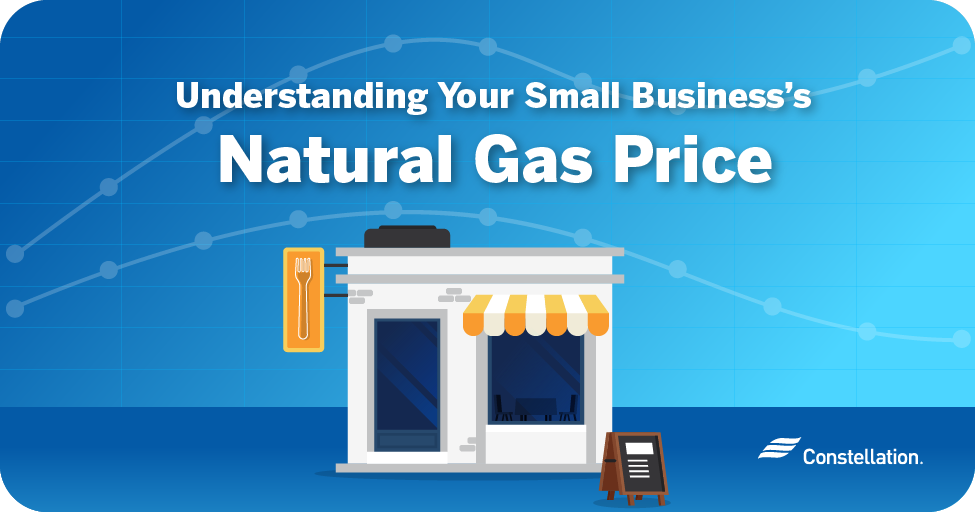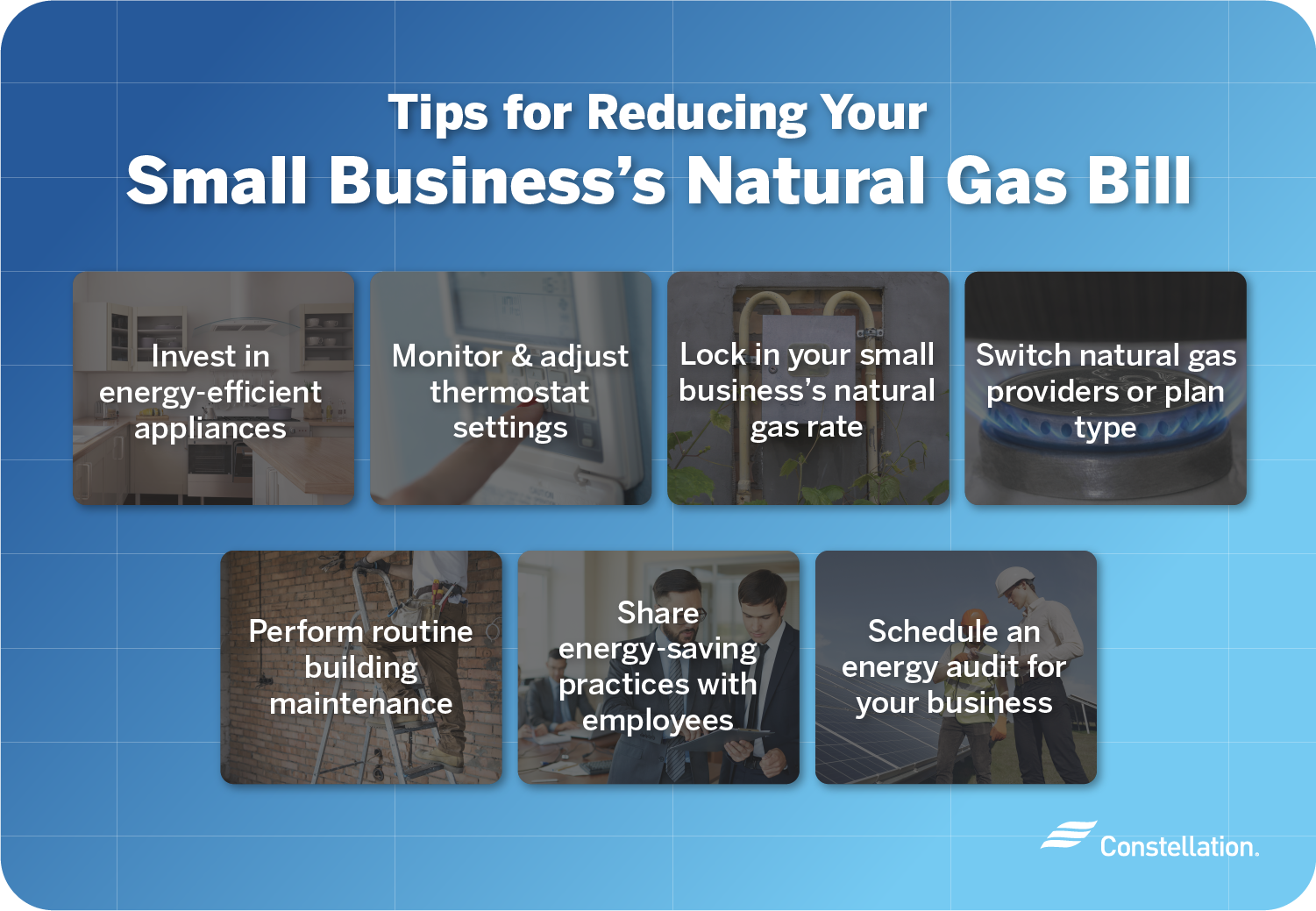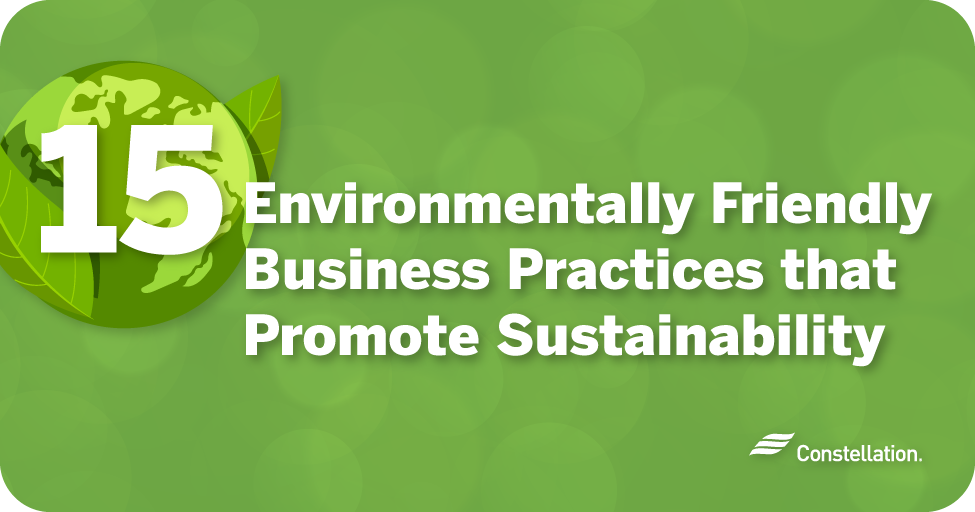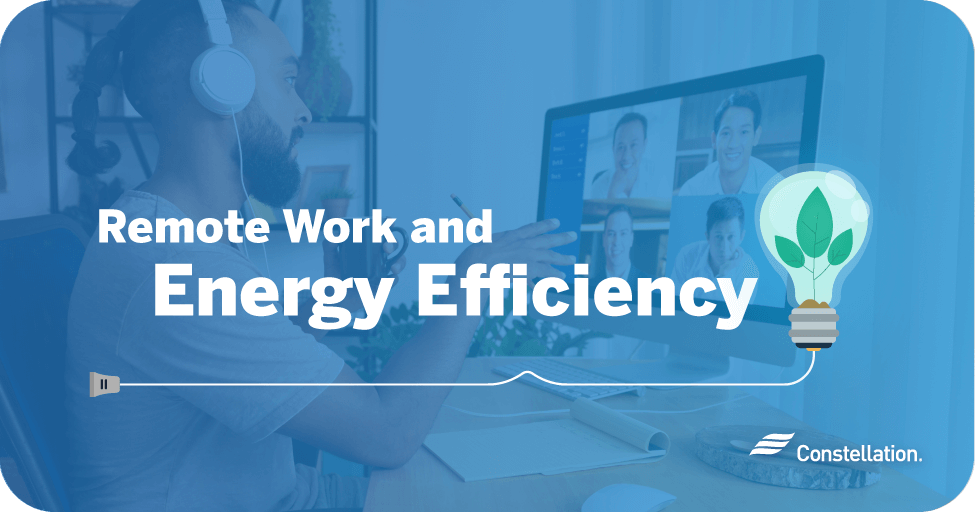
- Category:
Small Business Energy Savings - Published:
April 21, 2022
Understanding Your Small Business’s Natural Gas Price
When it comes to saving money and saving energy, understanding your small business natural gas price is the first step. How are natural gas prices determined? Knowing that and how to reduce your small business’s natural gas bill can affect your bottom line.
Components of your business’s natural gas price
What goes into natural gas prices? There are various components of your natural gas price, each of which are subject to change. For example, the interplay of each component against the others contributes to natural gas price volatility. Your natural gas price may also differ depending on who your natural gas supplier is. Here is a deeper look.
Commodity cost
How much natural gas is available compared to how much gas people need is the classic supply and demand relationship in commodity costs. If the supply of natural gas is low and demand is high, the price your small business pays for natural gas is going to be high.
The New York Mercantile Exchange (NYMEX) is the largest exchange for energy products in the world. Futures contracts for natural gas, legal agreements to buy and sell at a specified time, are how most natural gas is traded.
While supply and demand are instrumental in how natural gas prices are determined at the commodity level, so is the cost to produce it. Fracking, extracting natural gas from shale, is one of the more expensive ways to produce natural gas. About 67 percent of natural gas in the U.S. is produced through fracking, meaning the costs associated with the process are partially passed on to the customer.
Transportation and distribution costs
Production costs and changes in supply and demand are pretty straightforward but that is not all that goes into natural gas prices. Understanding your natural gas price also requires consideration of how the cost of transporting and distributing natural gas affects the price.
The central idea for calculating transportation and distribution costs is “basis pricing.” The basis price is the difference in value from the source of natural gas to where it is delivered. In areas like Appalachia where natural gas is plentiful and pipeline capacity is significant, the basis price is low. In New England, the local supply is low and pipelines are not able to handle as much volume, so the basis price is high.
Swing provisions
Your supplier must determine how much natural gas to buy on the NYMEX futures market based on how much natural gas it forecasts its customers will need. This amount may vary based on a variety of factors. Often, a swing provision is often added to natural gas contracts. Swing provisions set a range for the minimum amount of natural gas that can be bought at the negotiated future price and also the maximum.
Imagine your utility expects a cold winter with high demand. They will want to be able to buy as much natural gas as possible at a good price. But if temperatures don’t dip as expected, customers likely won’t have a need for the additional natural gas. With a swing provision, utilities can lock in a price for what they think they will need. If they end up needing less, they don’t have to buy the full amount of the contract. It’s still important for utility companies to make accurate estimates regarding how much natural gas to buy, but their guesses can fall within a range instead of being exact.
Line loss charges
As natural gas moves through pipelines, it is normal for the pressure to change at various points along the line. The difference in pressure at the source versus at the destination is considered a line loss. Inefficient natural gas pipelines–especially if they have small leaks, will suffer higher line losses, increasing the price of natural gas.
Taxes and fees
While not an actual component for the price of natural gas, taxes and fees added to your bill will affect how much you pay for natural gas. These vary by state and municipality.
How increases in natural gas prices affect businesses
The average cost of natural gas you have to pay will have a direct effect on your business.
- Higher operational costs. Higher energy costs affect the efficiency of your operation, eating into your profits.
- Increased overhead. While energy usage varies with output for some companies, for others, it is an overhead cost.
- Increased need for energy efficiency. When the cost of natural gas rises, making energy-efficient upgrades can help keep your energy expenses manageable.
7 tips for reducing your small business’s natural gas bill

Now that you understand your small business natural gas price components and factors that influence small business energy costs, here are some ways you use less energy and pay less for the energy you use. You can reduce how much high natural gas prices affect your bottom line.
1. Invest in energy-efficient equipment and appliances
If you are looking at how to reduce your natural gas bill, you might consider investing in energy-efficient office equipment and energy-efficient appliances. Because you use these items every day, even small savings really add up over the course of the year.
2. Monitor and adjust your thermostat settings
If your office is heated with natural gas, paying attention to your business’s thermostat settings and actively managing the temperature in your space can help reduce your natural gas costs. You can set an ideal office temperature that balances comfort and costs.
3. Lock in your small business’s natural gas rate
Understanding your energy bill will give you insight into the type of energy plan you have. Two common options are fixed-rate or variable-rate energy plans. In the first case, you negotiate a rate for the term of your contract, usually a year. In the second case, the rate you pay is tied to the market and varies with changes in natural gas prices.
You can manage your own futures contract in a way by choosing the ideal time for when to lock in your natural gas rate. If you contract during a low demand period, you might be able to lock in that rate for a year and reduce your business’s annual natural gas expense. With energy prices so high, an energy procurement strategy can put some control back in your hands.
4. Switch your business’s natural gas provider or plan type
In competitive markets, you have energy choice, meaning you have options in terms of providers and plans. Competition and options help you get better prices. You may be able to lower the rate you pay for natural gas for your business by comparing your natural gas solutions and exploring how to choose an energy provider.
5. Perform routine building maintenance
Routine maintenance of systems that run on natural gas will keep them running efficiently.
- Clean air vents. Clogged air vents make your system work harder to push air through.
- Replace air filters. Clean, new air filters are more efficient than those full of dirt and grime.
- Repair any air leaks. Air leaks in your ducts make heating and cooling less efficient. Air leaks around windows, doors and other openings in your facility bleed heated or cooled air. Find air leaks that waste energy.
- Schedule seasonal check-ups. Having a professional check to ensure your system is in good operating condition keeps it running efficiently and prevents unexpected problems and expensive emergency repairs.
6. Share energy-saving practices with your employees
Educate your staff with tips and information about energy-saving practices for employees. Simple things like reminders to turn off lights and powering down equipment can help. Ask employees for suggestions. Give rewards for good ideas and for putting them into action.
7. Schedule an energy audit for your business
Many companies waste energy without realizing it. Taking time out to conduct an energy audit, either on your own or by hiring a professional, can identify areas where you are using more energy than you need to. Often, simple fixes and changed habits can dramatically cut annual energy usage.
Take control over your natural gas expenses
With competition in the marketplace, you have some choice when it comes to who supplies your energy and which plans and natural gas solutions for small businesses that you can take advantage of. Now that you have an understanding of your small business natural gas price and how natural gas prices are determined, you can better take charge of this business expense.




